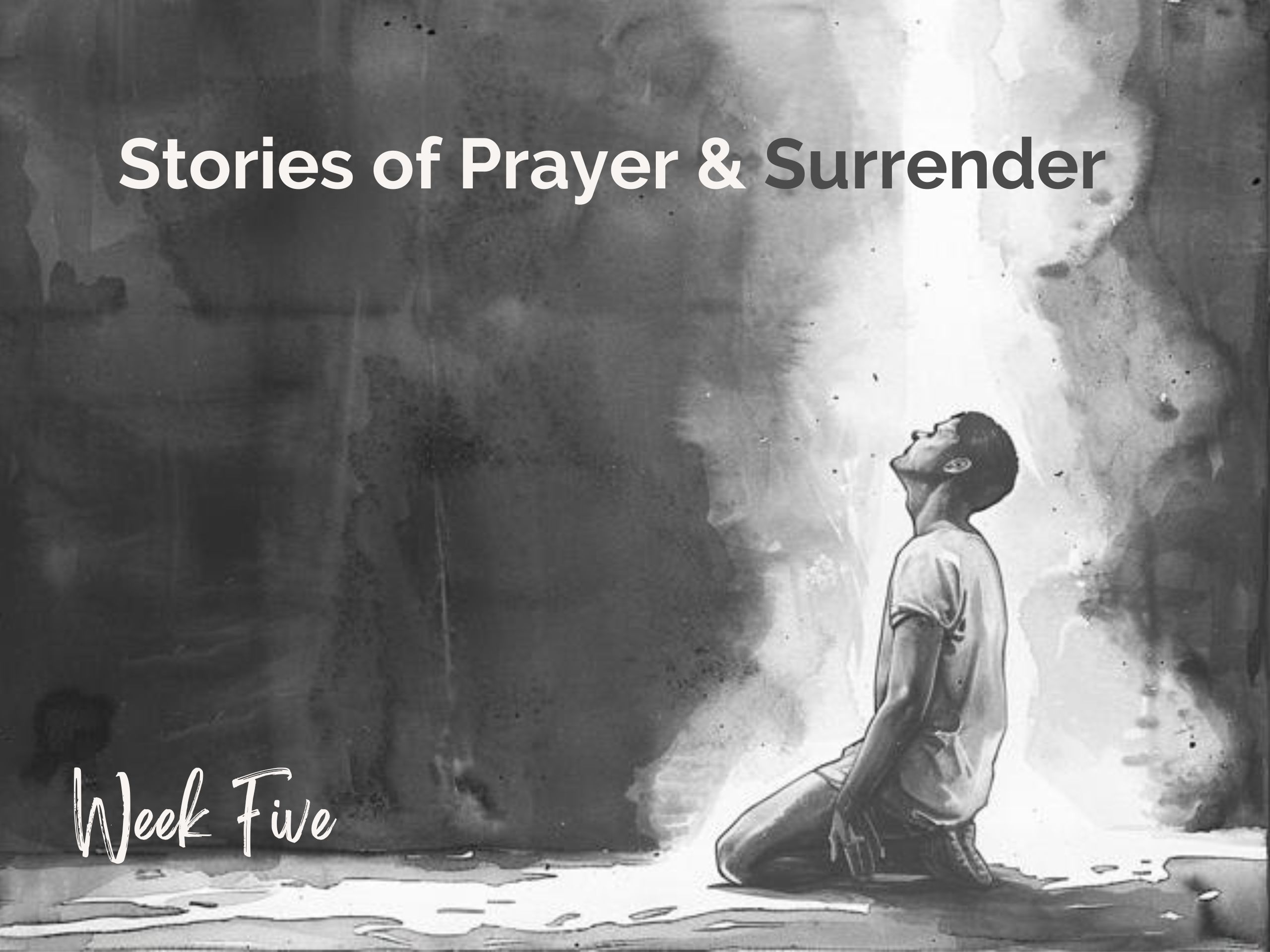Jacob the Wrestler
does not choose this fight. But when he finds himself locked in an immortal struggle, he is either wise enough or reckless enough to hang in there.
Jacob is at a tumultuous point in his life when God comes—in the form of an angel—to wrestle with him. He is alone, camped by a river. It is night. In the morning he will meet his brother who is probably coming to kill him for stealing his birthright blessing. After hours of battling, Jacob might just have prevailed, but the angel touches his thigh and dislocates his hip. Even then, Jacob hangs on like a punch-drunk heavyweight, refusing to let go until the angel gives him a blessing. He emerges with a new name, Israel, meaning, “one who has striven with God” (Gen. 32:22-32).
This prizefight is the most powerful story of surrender in the Bible, and when it is over the loser has won. I don’t know any better illumination of this story and the power of surrender than Rainer Marie Rilke’s great poem, “The Man Watching.” Years ago I committed it to memory.
The poem begins with an approaching storm, something colossal and powerful. These are the storms that overtake our lives and stir up forgotten times and places. They sweep out of nowhere and violently re-shape our inner landscape. What if, the poet asks, what if we let those storms sweep over us and re-shape us, rather than always resisting, blocking, protecting?
Here is the poem. (I have bolded a few key lines.)
I can tell by the way the trees beat, after
so many dull days, on my worried windowpanes
that a storm is coming,
and I hear the far-off fields say things
I can’t bear without a friend,
I can’t love without a sister.
The storm, the shifter of shapes, drives on
across the woods and across time,
and the world looks as if it had no age:
the landscape, like a line in the psalm book,
is seriousness and weight and eternity.
What we choose to fight is so tiny!
What fights with us is so great.
If only we would let ourselves be dominated
as things do by some immense storm,
we would become strong too, and not need names.
When we win it’s with small things,
and the triumph itself makes us small.
What is extraordinary and eternal
does not want to be bent by us.
I mean the Angel who appeared
to the wrestlers of the Old Testament:
when the wrestlers’ sinews
grew long like metal strings,
he felt them under his fingers
like chords of deep music.
Whoever was beaten by this Angel
(who often simply declined the fight)
went away proud and strengthened
and great from that harsh hand,
that kneaded him as if to change his shape.
Winning does not tempt that man.
This is how he grows: by being defeated, decisively,
by constantly greater beings.
“The Man Watching” by Rainer Marie Rilke (Trans. by Robert Bly)
“When we win it’s with the small things.” Isn’t that a summation of our lives? What if we paid attention to the big things? Yes, the frightening things? What if we understood the storms of life as powerful interventions from God, as the divine means for shifting our shape, changing our name, bestowing the blessing?
P.S. You might want to read that masterful poem again, aloud.
COMPANIONS ON THE WAY
Introduction
Stories of Turning
Week One
Stories of Wild Places
Week Two
Stories of Dogged Faith
Week Three
Stories of Mercy & Forgiveness
Week Four
Stories of Simplicity & Joy
Week Five
Stories of Prayer & Surrender
Week Six
Stories of Transforming Love

I remember a professor of mine commenting on the in-fighting in academia: the battles are so fierce because the stakes are so small. Thanks, David!
Yep. Academia is famous for it, but that small-stakes dynamic is everywhere.
“This is how he grows: by being defeated, decisively..” It’s funny I shared this at my AA meeting at St Brigita’s (beautiful) Sunday morning..I shared that the two years of crippling depression I battled daily 2020-2022 I would not wish on my worst enemy and yet I am INCREDIBLY grateful every morning I wake up not feeling that way. It’s perspective impossible to understand if you haven’t fought this worthy beast.
“If you haven’t fought this worthy beast”–that’s a line worthy of the Rilke poem, Matt. Thanks for letting us in on your wrestling match.